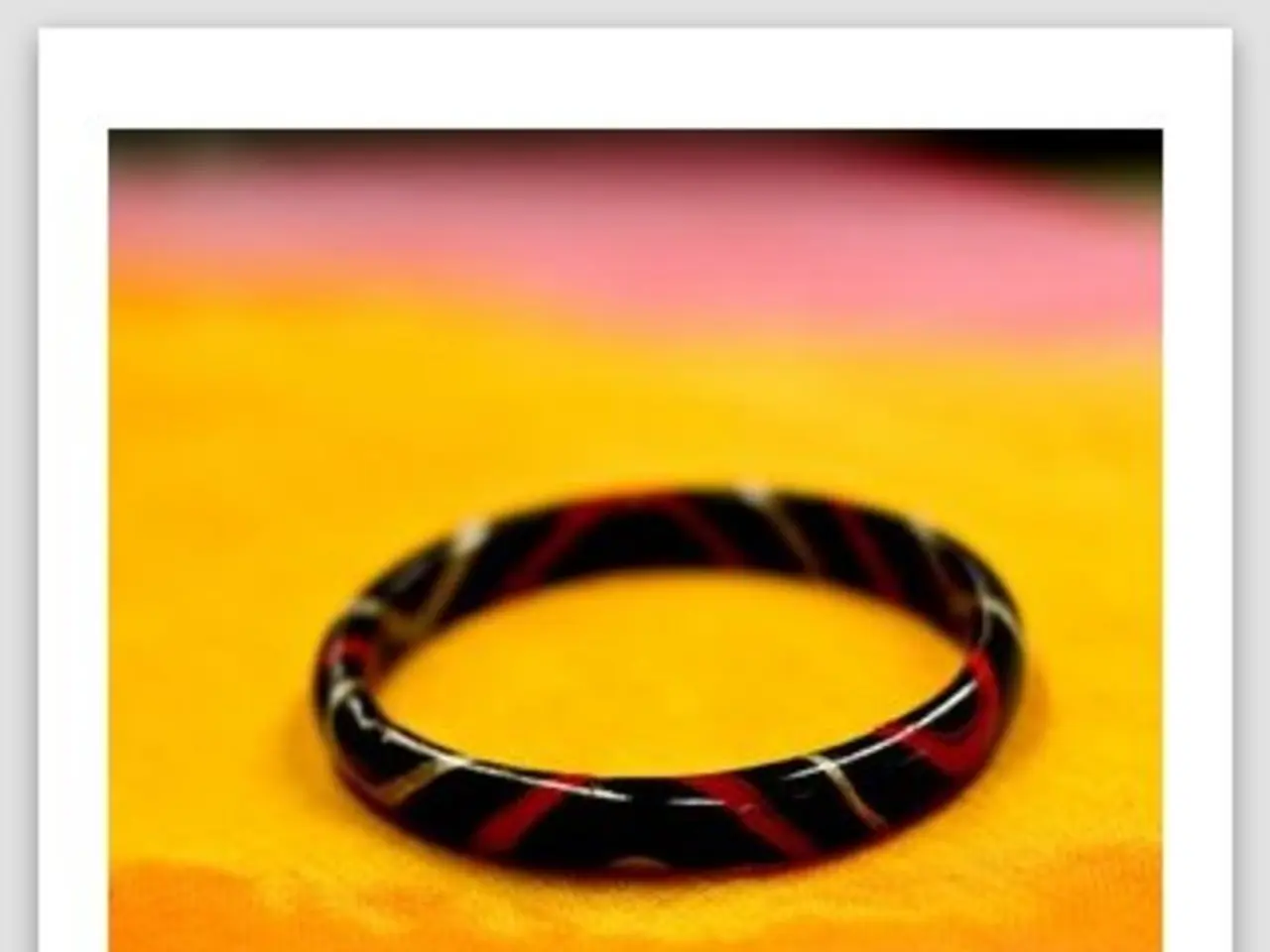Reviving tradition with a modern twist: Pakistani textile company transforms fabric waste into enduring fashion creations
In the heart of Pakistan, two sustainable fashion brands are making a significant impact on the environment and local communities. Earthy Murkey and Dhundli Zameen, founded by 42-year-old academician Sana Khan, are revitalising the nation's fashion industry by upcycling textile waste into eco-friendly, artisan-made fashion products.
Khan's inspiration for these brands came after her return to Pakistan in 2019, following a stint in Australia. Observing the government-led "no plastic movement," she felt compelled to address the negative impact of textile waste on Pakistan's environment. This led her to revive traditional crafts like the Sindh province’s Rilli patchwork quilting, a practice where rural women create cotton scraps into beautiful art.
Earthy Murkey specialises in handbags made from discarded fabrics and leather, while Dhundli Zameen offers slow-fashion prêt lines featuring hand-dyed kurtis, jackets, and shirts created from rejected fabrics using natural dyes. The latter, a made-to-order brand, takes 15 to 20 days to develop each piece before stitching.
The workshop for Dhundli Zameen is located in Bhit Shah, a town in Sindh's Matiari district, where the ancient art of indigo dyeing still thrives. The brand sources rejected fabrics from various mills and converts them into fusion jackets and short kurtis.
Khan aims for smaller production runs, better fabric quality, more natural dyes, and garments designed to "last a lifetime" or be passed down from generation to generation. This approach not only reduces textile waste but also empowers local artisans, particularly women in rural areas.
The impact on local artisans is significant. These brands provide economic empowerment and income opportunities, with craftswomen gathering to produce textile art that not only sustains their livelihoods but also carries stories of resilience and tradition with each piece.
Environmentally, Khan’s brands help reduce textile waste and utilise natural materials and dyes, thus contributing to climate conservation in Pakistan. Dhundli Zameen uses vegetable, spice, and food dyes to craft eco-friendly clothes.
In 2021, Khan expanded her brand to offer a pret line that includes kurtis, jackets, short shirts, and traditional handicrafts like rilli and block printing. The COVID-19 pandemic, which was declared a global pandemic by the World Health Organization in March 2020, followed by two-year lockdowns across the world, led to an increase in sales due to alignment with the "zero-waste fashion movement."
Khan sees hope in Gen Z, who are more conscious about what they wear, what they eat, and what they put on their skin. She travels through various regions of Pakistan to rediscover dying crafts like the chikankari embroideries of Multan and the appliqué rillies of Larkana.
A recent study by the British Council found that Pakistan's fashion and textile sectors, along with their agricultural and industrial supply chains, are predominantly unsustainable. However, with visionaries like Sana Khan leading the way, there is a glimmer of hope for a more sustainable and culturally rich fashion industry in Pakistan.
- Sana Khan, an academician, founded sustainable fashion brands Earthy Murkey and Dhundli Zameen in Pakistan, revitalizing the nation's fashion industry by upcycling textile waste into artisan-made products.
- Khan's inspiration for these brands came after her return to Pakistan in 2019, observing the government-led "no plastic movement" and the negative impact of textile waste on the environment.
- Earthy Murkey specializes in handbags made from discarded fabrics and leather, while Dhundli Zameen offers slow-fashion prêt lines featuring hand-dyed kurtis, jackets, and shirts created from rejected fabrics using natural dyes.
- Dhundli Zameen's workshop is located in Bhit Shah, a town in Sindh's Matiari district, where the ancient art of indigo dyeing still thrives.
- Khan aims for smaller production runs, better fabric quality, more natural dyes, and garments designed to last a lifetime or be passed down from generation to generation, reducing textile waste and empowering local artisans.
- Environmentally, Khan’s brands help reduce textile waste and utilize natural materials and dyes, thus contributing to climate conservation in Pakistan.
- With Gen Z becoming more conscious about their consumption choices, Khan sees hope for a more sustainable and culturally rich fashion industry in Pakistan, as she travels through various regions to rediscover dying crafts like chikankari embroideries and appliqué rillies.





